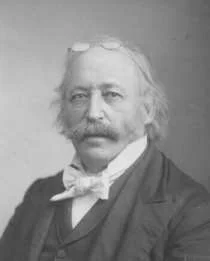Many years ago, I attended a conference sponsored by the Reform movement on Jewish ethics at summer camp. It brought together rabbis and educators for a high-level conversation about informal education on “Reform Jewish ethics.”
The primary teacher was Warren Zev Harvey, the Orthodox scholar and Professor of Jewish Thought at Hebrew University. At the very end of the program (in my memory, he was already wearing his coat and hat and preparing to exit), Professor Harvey posed a challenge to us: “Why do you insist on calling your work Reform Jewish ethics? Why aren’t you self-confident enough about your interpretation of Torah simply to call it Jewish ethics, without the qualifier?”
He was asking us to have the integrity to stand by the authenticity of our own understanding of Judaism, rather than to consider it a parochial eddy outside the mainstream of the Torah tradition. I thought then it was a brilliant question, and it continues to resound with me today.
I’m thinking about that day, since I’ve just returned from attending and presenting at a national conference called “Recharging Reform Judaism,” an important conversation for a religious movement that is in crisis.
My presentation was about the theme of Jewish peoplehood, an idea that has taken a battering in recent years. From the right wing, there are continuous assaults on the legitimacy of non-Orthodox expressions of Judaism. From the left, there are consistent denials of unique responsibility and duties toward one’s people.
Even though I’m attached to fewer and fewer institutions of Reform Judaism these days, and I find myself preferring spaces where those labels do not hold, it’s still the movement in which I largely was raised, and I’m a graduate of Hebrew Union College-Jewish Institute of Religion, the Reform rabbinic seminary, so I have a partisan interest in this discussion.
The conference had its share of successes and failures, and I’ll try to write about them in the days ahead. But one thought lingers with me both before and after the gathering.
It may seem strange to say, but the conference prompted me to wonder: Is there even such thing as a Reform Jew?
Or, for that matter, a Conservative or Reconstructionist or Renewal Jew?
I propose that the answer is: No.
It’s not that those words—Reform, Conservative, Orthodox, Renewal, Reconstructionist, etc.—don’t mean anything; they most certainly do. It’s simply this: those adjectives don’t describe Jews. They describe synagogues.
When you became part of the Jewish people – either at birth or upon conversion – no one ever said to you, “Mazel Tov, it’s a Conservative Jew!” or “Congratulations, you are now a Reform Jew!” They did say: Mazel Tov – welcome to am yisrael, the Jewish people wherever we are to be found around the world. A Jew is simply (?) a Jew, and the principle of klal yisrael emphasizes the connections that a Jew in Massachusetts shares with a Jew in Ukraine, or Tel Aviv, or Argentina, or Uganda.
And yet, so many obsess over the labels. What they fail to recognize is that it isn’t the modifier – “Reform” “Conservative” “Orthodox” “Renewal” “neo-Chasidic” or whatever – that is ultimately important. What is important is the “Jewish” part.
Again, the language of different communities is instructive and important. There are qualitative distinctions to be found between different communities, and that’s okay by me. I’m a pluralist by nature.
Personally, I think the demise of the religious movements in America is exaggerated. There is a value to the existence of movements in American Jewish life. That main value is a certain sort of persuasive social power that movements have, as opposed to being a lone satellite in the synagogue universe. The religious movements have the power and potential to speak, for instance, as a moral voice on social issues with far more weight that a lone community can.
(And please—can we stop calling the movements “denominations”? We’re not Protestants. And the word “movement” is a good one, implying dynamism and growth as opposed to stagnation and conformity.)
But as for each of us, as individuals: I think the Jewish people would be much more cohesive if more of us saw ourselves with the flexibility to move between communities, recognizing the inherent worth of diverse expressions of Judaism—even if we naturally find ourselves at home in one setting over another.
I do recognize that there will remain an essential divide between Orthodox/halakhic communities and non-halakhic ones. I can understand why many women, for instance, would not want to participate in a shul with a mechitzah, or liberal-minded people in general could not pray in a community that doesn’t accept LGBTQ individuals. Likewise, I get why halakhic people can’t pray with communities whose siddurim are less-then-fully traditional. That boundary is real, and understandably so.
But my point is: as individuals, our identification should be with the Jewish people, rather than our own narrow sliver. As Professor Harvey challenged me a long time ago: Have the self-confidence (and literacy) to interpret the Torah with authenticity and confidence, even while retaining the modesty to listen to others’ viewpoints. The Jewish people as a whole will be stronger for it.
In other words, when they ask you, “What kind of Jew are you?”, tell them: “A committed / creative / ever-growing / Mitzvah-loving / constantly learning / etc. sort of Jew.”
But as for the institutional labels? Leave them for the institutions where they belong.
Image: Isaac Mayer Wise, American Jewish Archives
